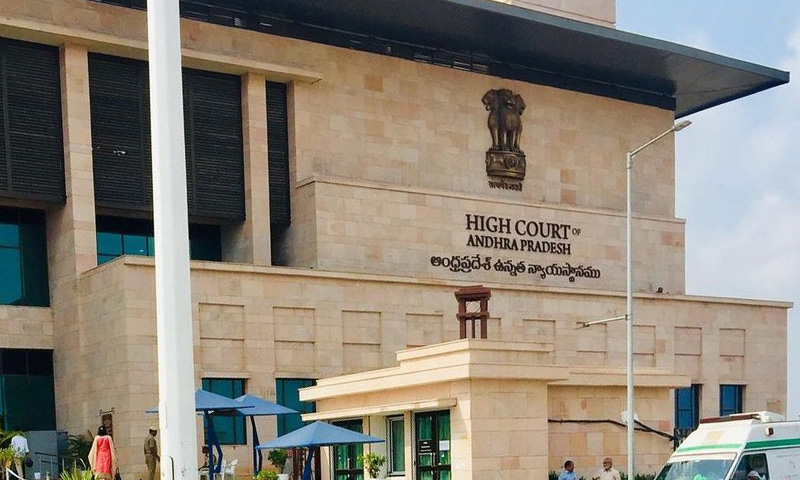
The Andhra Pradesh High Court in one important observation, has held that approaching a constitutional court for redressal of grievances ipso facto would not disentitle a citizen from protesting in relation to the same subject-matter.
The Division Bench comprising of Justice Ahsanuddin Amanullah and Justice B.S. Bhanumathi added that when the Court would be looking at the dispute, it would examine the matter only from a legal lens, based upon settled parameters of adjudication; whereas, the purpose of protest is to draw attention of the government to an issue.
The petitioner's case concerns around grievance towards pay scales. He sought declaration that one order issued by the State Govt was illegal and arbitrary and contrary to provisions of the Andhra Pradesh Re-Organization Act, 2014 and the Constitution of India.
The contention of the AG was that when the Court has already been called upon, by way of the writ petition filed by the Employees' Union, it was not proper for the Union to give a call for, or proceed on strike, which could bring the State's administrative machinery to a grinding halt. He submitted that though Article 19(1)(a) guarantees to all citizens right to freedom of speech and expression, it is not absolute.
To this submission, the Court mentioned Ramlila Maidan Incident Dt.4/5.06.2012 Vs. Home Secretary, Union of India & Ors. [February 23, 2012], 2012 Latest Caselaw 133 SC wherein it was noted:
As difficult as it is to anticipate the right to any freedom or liberty without any reasonable restriction, equally difficult it is to imagine the existence of a right not coupled with a duty. 7 The duty may be a direct or an indirect consequence of a fair assertion of the right. Part III of the Constitution, although confers rights, duties, regulations and restrictions are inherent thereunder. It can be stated with certainty that the freedom of speech is the bulwark of democratic Government. This freedom is essential for the appropriate functioning of the democratic process. The freedom of speech and expression is regarded as the first condition of liberty in the hierarchy of liberties granted under our constitutional mandate."
It further referred to Mazdoor Kisan Shakti Sangathan Vs. The Union of India & ANR., 2018 Latest Caselaw 482 SC, AMIT SAHNI vs. COMMISSIONER OF POLICE, 2020 Latest Caselaw 541 SC and noted that that approaching a Court wouldn't prohibit the person in question from protesting in a legally permissible manner, subject to the caveat being the extant rules and regulations guiding the person concerned, inclusive of his status, if so, as a government employee.
It further opined that protests prompt the government to examine factors, which, in the usual course, the Court could not look at, given the scope of permissible judicial review.
In the present case, the Court observed that only if any rule akin to Rule 22 of the Tamil Nadu Government Servants Conduct Rules, 1973, as referred to in Rangarajan (supra) is applicable to the employees of the Government of Andhra Pradesh, the situation would we different otherwise, the above precedents and legal preposition applies.
He cited T.K. Rangarajan Vs. Government of Tamil Nadu & Others, 2003 Latest Caselaw 353 SC.
To this submission, the Court mentioned Ramlila Maidan Incident Dt.4/5.06.2012 Vs. Home Secretary, Union of India & Ors. [February 23, 2012], 2012 Latest Caselaw 133 SC wherein it was noted:
In the present case, the Court observed that only if any rule akin to Rule 22 of the Tamil Nadu Government Servants Conduct Rules, 1973, as referred to in Rangarajan (supra) is applicable to the employees of the Government of Andhra Pradesh, the situation would we different otherwise, the above precedents and legal preposition applies.
Social media is bold.
Social media is young.
Social media raises questions.
Social media is not satisfied with an answer.
Social media looks at the big picture.
Social media is interested in every detail.
social media is curious.
Social media is free.
Social media is irreplaceable.
But never irrelevant.
Social media is you.
(With input from news agency language)
If you like this story, share it with a friend!
We are a non-profit organization. Help us financially to keep our journalism free from government and corporate pressure













0 Comments